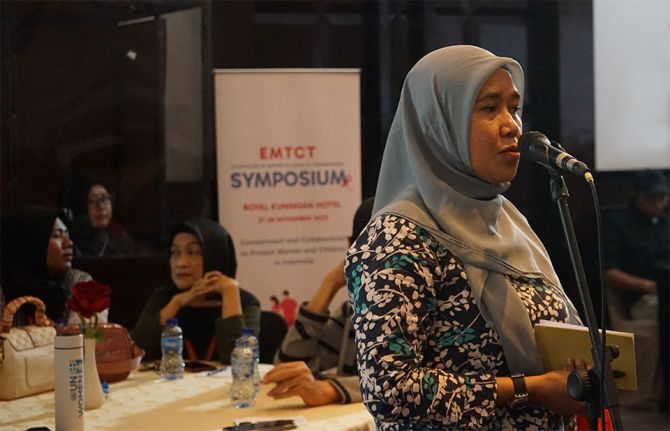
Feature Story
Linking maternal and child health to AIDS ahead of G8 Summit
01 June 2010
01 June 2010 01 June 2010
UNAIDS Deputy Executive Director for Management and External Relations, Jan Beagle, delivered the keynote speech at an event for Canadian Parliamentarians. 25 May 2010.
Canada will host the annual summit meeting of heads of government of the Group of Eight (G8) countries in Huntsville, Muskoka from 25 to 26 June 2010. The Muskoka Summit aims to deliver the ambitious commitments made at the G8 summits since 1997 related to health, development, the environment, security and good governance.
The G8, which is composed of governments of France, Germany, Italy, Japan, the United Kingdom, the United States, Canada and Russia, met last year in Italy and reaffirmed existing commitments on global health, including US$60 billion for health over 5 years, 100 million malaria bed nets by 2010, and universal access to HIV treatment by 2010. A Global Consensus on Maternal Health was also adopted, which includes support for free services for women and children where countries choose to provide it. The first G8 accountability framework was published, showing individual country progress against some key G8 commitments.
Reducing the number of children who die before the age of five is the fourth Millennium Development Goal (MDG 4), while doing the same for mothers during pregnancy or childbirth is the fifth goal (MDG 5). These two Goals are often referred to as the health related MDGs along with the response to AIDS, malaria and other diseases. These three MDGs are closely interlinked and recent data has shown how HIV has prevented further progress in improving maternal health and reducing child mortality.
According to a recent study to assess progress towards MDG4, mortality in children younger than 5 years has dropped from 11.9 million deaths in 1990 to 7.7 million deaths in 2010 worldwide. A similar study focusing on MDG 5 estimates that there were 342.900 maternal deaths worldwide in 2008, down from 526.300 in 1980. The study also highlights that there would have been 281.500 maternal deaths worldwide in 2008 in the abscence of HIV.
Maternal and child health and AIDS
Ahead of the G8 Summit and to highlight the important link between the 2010 G8 focus on maternal and child health and previous G8 commitments to the AIDS response, UNAIDS Deputy Executive Director for Management and External Relations, Jan Beagle, delivered the keynote speech at an event for Canadian Parliamentarians. The event, hosted by the Canadian Federation of Nurses Unions (CFNU) took place in Ottawa on 25 May and was attended by parliamentarians, health officials, civil society representatives and several African Ambassadors. CFNU represents 158.000 nurses and student nurses and regularly holds events for Members of Parliaments on health and public interest topics.
In her address, Ms Beagle stated that the Joint UN Programme on HIV/AIDS (UNAIDS) was encouraged by the sharp focus of the Canadian G8 Presidency on child and maternal health.
“As HIV is the leading cause of death among women of reproductive age, the global response to AIDS can and must be leveraged more effectively to meet women health needs,” said Ms Beagle.
She noted that the Muskoka initiative is in line with the UN Secretary-General’s global Joint Plan of Action focusing on the health of women and children which was launched in April 2010.
Ms Beagle called for an integrated approach to all the Millennium Development Goals and highlighted that MDG 4 and 5 cannot be accomplished without a strong commitment—and real action—on universal access to HIV prevention, treatment, care and support.
Prevention of mother-to-child transmission (PMTCT) programmes provide a platform for integrated service delivery. The recent scale up of mother-to-child HIV transmission programmes enables women to receive sexual and reproductive services at the facilities where they receive PMTCT services. Integrated services can maximize health system capacity by leveraging human resources for broader health gains.
“The focus on maternal and child health represents a unique opportunity for Canada to demonstrate to the G8 how well this ties in with G8 commitments on the AIDS response,” said Ms Beagle. “It also represents a unique opportunity to highlight to the G8 the importance of accountability and monitoring of progress on previous commitments”.
Linking maternal and child health to AIDS ahead o
Feature stories:
During Winter Olympics, UNAIDS calls on Canada to ensure G8 delivers on universal access (28 February 2010)
Speeches:
External links:
G8 summit 2010 official website
Canadian Federation of Nurses Unions


